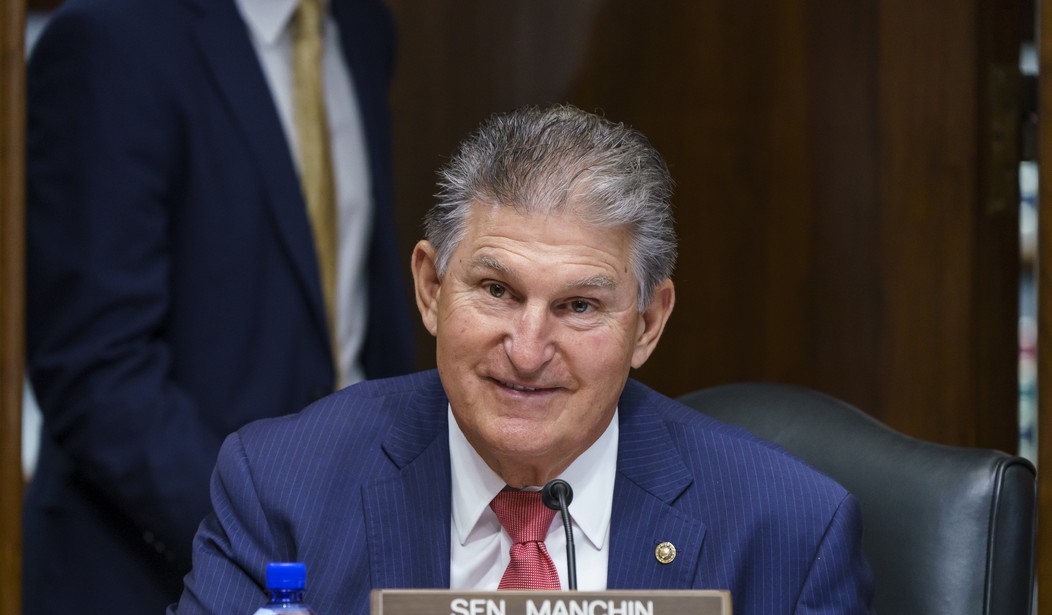Is it still September 30th? Since the infrastructure bill still hasn’t come up for a vote in the House, I was assuming it was, but alas… Speaker Pelosi has finally let the calendar tick over to October. There appeared to be some movement on the biggest stumbling block to passing infrastructure last night, though clearly not all of the Democrats are going to be wild about it. Joe Biden seems to have finally resigned himself to the fact that his massive $3.5 trillion “reconciliation” bill isn’t going to be going through as advertised. In fact, he told several Democratic House members that “it’s going to be smaller.” But how much smaller? And how will they get to that lower number? Other questions remain, but there is clearly talk of a compromise in the air. (Associated Press)
President Joe Biden and congressional Democrats’ push for a 10-year, $3.5 trillion package of social and environmental initiatives has reached a turning point, with the president repeatedly conceding that the measure will be considerably smaller and pivotal lawmakers flashing potential signs of flexibility.
In virtual meetings Monday and Tuesday with small groups of House Democrats, Biden said he reluctantly expected the legislation’s final version to weigh in between $1.9 trillion and $2.3 trillion, a Democrat familiar with the sessions said Tuesday. He told them he didn’t think he could do better than that, the person said, reflecting demands from some of the party’s more conservative lawmakers.
On the surface, this has the appearance of how spending bills have traditionally been negotiated in more “normal” times. But as we’ve pointed out here repeatedly, 2021 is far from normal. Biden and the Progressive Caucus wanted $3.5 trillion. Manchin and Sinema wanted $1.5 trillion. So the range of 1.9 to 2.3 sounds like a middle-of-the-road deal, right? Perhaps. But even if Manchin comes up to 1.9, Pramila Jayapal, the head of the Progressive Caucus, was still saying yesterday that 2.5 was her lowball offer.
Then, as I already mentioned, they’ll be facing the question of how the bill gets shrunk down that far. A couple of weeks ago, Jayapal was making the rounds of the Sunday shows when the subject of a smaller number was brought up. She immediately wanted to know whether some of the Democrats’ prized wish list programs would be eliminated or if all of them would be shrunk. Neither option sounded appealing to her. But those are the only two real options on the table. Also, some programs would need to either be delayed or run for shorter periods of time initially just to stretch the funds out.
The Democrats’ problems aren’t over, however, even if they come up with a number everyone can grudgingly agree on. One of Joe Manchin’s other “red lines” may still come back to haunt them. He’s still saying that the Hyde Amendment has to be included in the reconciliation bill or his vote goes back to “no.” (The Hill)
Democrats are clashing over whether to include in their sweeping spending plan a decades-old amendment that blocks Medicaid and other federal health programs from being used to cover abortions.
Sen. Joe Manchin (D-W.Va.), already a key stumbling block to Democratic unity on the $3.5 trillion reconciliation bill, has drawn a line in the sand around the issue, but others in the party are split over whether to include the so-called Hyde Amendment in a portion of the spending bill that would create a new federal program to provide health care coverage to low-income individuals in GOP-led states that haven’t adopted Medicaid expansions under the Affordable Care Act (ACA).
Some of Jayapal’s caucus members have really been running with the abortion question ever since the Texas heartbeat bill passed. They really want the Hyde Amendment stripped out of the new healthcare programs they’re trying to drive through as part of the reconciliation package. If they draw their own line in the sand there, we could be right back where we were last week.
I’ll concede that we’re closer to a possible compromise on this disastrously large spending package than we’ve been since the beginning. And it’s still possible that they might succeed in jamming something through the Senate in the not-too-distant future. But keep an eye on the Progressive Caucus in the meantime. Jayapal has already proven repeatedly that she can herd her caucus successfully and that she’s not willing to compromise on their primary demands. If that weren’t the case, the infrastructure bill would already have passed. She may give a few inches on the price tag, but I predict that she’s never going to give a mile on their major demands.







Join the conversation as a VIP Member